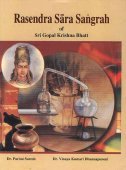Parimita: 13 definitions
Introduction:
Parimita means something in Hinduism, Sanskrit, Buddhism, Pali, Marathi, Hindi. If you want to know the exact meaning, history, etymology or English translation of this term then check out the descriptions on this page. Add your comment or reference to a book if you want to contribute to this summary article.
Languages of India and abroad
Pali-English dictionary
Source: BuddhaSasana: Concise Pali-English Dictionaryparimita : (pp. of parimiṇāti) measured; limited; restricted.
Source: Sutta: The Pali Text Society's Pali-English DictionaryParimita, (pp. of parimināti) measured, restricted, limited, only in neg. a° measureless Pv. II, 811; Miln. 287, 343. (Page 431)

Pali is the language of the Tipiṭaka, which is the sacred canon of Theravāda Buddhism and contains much of the Buddha’s speech. Closeley related to Sanskrit, both languages are used interchangeably between religions.
Marathi-English dictionary
Source: DDSA: The Molesworth Marathi and English Dictionaryparimita (परिमित).—p (S) Measured, meted: adjusted, proportioned, regulated by some rule or standard. 2 Moderate, temperate, being in just quantity or proportion. See ex. of comp. under mita.
Source: DDSA: The Aryabhusan school dictionary, Marathi-Englishparimita (परिमित).—p Measured. Moderate, temperate.
Marathi is an Indo-European language having over 70 million native speakers people in (predominantly) Maharashtra India. Marathi, like many other Indo-Aryan languages, evolved from early forms of Prakrit, which itself is a subset of Sanskrit, one of the most ancient languages of the world.
Sanskrit dictionary
Source: DDSA: The practical Sanskrit-English dictionaryParimita (परिमित).—p. p.
1) Moderate, sparing.
2) Limited.
3) Measured, meted out.
4) Regulated, adjusted.
Source: Cologne Digital Sanskrit Dictionaries: Shabda-Sagara Sanskrit-English DictionaryParimita (परिमित).—mfn.
(-taḥ-tā-taṃ) 1. Joined. 2. Meted, measured. 3. Regulated. E. pari, mā to measure, kta aff.
Source: Cologne Digital Sanskrit Dictionaries: Cappeller Sanskrit-English DictionaryParimita (परिमित).—[adjective] meted out, measured; limited, little, few.
Source: Cologne Digital Sanskrit Dictionaries: Monier-Williams Sanskrit-English Dictionary1) Parimita (परिमित):—[=pari-mita] [from pari-mā] mfn. (pari-) measured, meted, limited, regulated, [Ṛg-veda] etc. etc.
2) [v.s. ...] moderate, sparing, [Mahābhārata; Kāvya literature] etc.
Source: Cologne Digital Sanskrit Dictionaries: Yates Sanskrit-English DictionaryParimita (परिमित):—[pari-mita] (taḥ-tā-taṃ) a. Meted; joined.
Source: DDSA: Paia-sadda-mahannavo; a comprehensive Prakrit Hindi dictionary (S)Parimita (परिमित) in the Sanskrit language is related to the Prakrit word: Parimia.
[Sanskrit to German]
Sanskrit, also spelled संस्कृतम् (saṃskṛtam), is an ancient language of India commonly seen as the grandmother of the Indo-European language family (even English!). Closely allied with Prakrit and Pali, Sanskrit is more exhaustive in both grammar and terms and has the most extensive collection of literature in the world, greatly surpassing its sister-languages Greek and Latin.
Hindi dictionary
Source: DDSA: A practical Hindi-English dictionaryParimita (परिमित) [Also spelled parimit]:—(a) finite; measured; limited; ~[tā] limitation; finiteness.
...
Kannada-English dictionary
Source: Alar: Kannada-English corpusParimita (ಪರಿಮಿತ):—
1) [adjective] measured.
2) [adjective] confined within boundaries; bound.
3) [adjective] restricted to a limit; limited.
4) [adjective] jointed; joined; combined.
--- OR ---
Parimita (ಪರಿಮಿತ):—
1) [noun] th quality or condition of being bound within boundaries.
2) [noun] the quality or condition of being limited, restricted.
3) [noun] a meeting of limited number of persons (as for deciding a secret plot, confidential discussion, etc.).
4) [noun] an astronomically huge number.
Kannada is a Dravidian language (as opposed to the Indo-European language family) mainly spoken in the southwestern region of India.
See also (Relevant definitions)
Starts with: Parimitabharana, Parimitabhojana, Parimitabhuj, Parimitahara, Parimitakatha, Parimitam, Parimitaparigraha, Parimitate, Parimitatta, Parimitatva, Parimitavrishti, Parimitayus.
Ends with: Aparimita, Mahaparimita.
Full-text (+10): Parimitayus, Parimitabhuj, Parimia, Parimitahara, Parimitabhojana, Parimitakatha, Aparimita, Parimitabharana, Parimitatva, Parimitecchata, Aparimitagunagana, Aparimitakritvas, Aparimitavidha, Parimitam, Aparimitadha, Parimitya, Kitapata, Parimitatta, Aparimitalikhita, Parimit.
Relevant text
Search found 9 books and stories containing Parimita, Pari-mita; (plurals include: Parimitas, mitas). You can also click to the full overview containing English textual excerpts. Below are direct links for the most relevant articles:
Maha Prajnaparamita Sastra (by Gelongma Karma Migme Chödrön)
Part 16 - Obtaining the immense longevity and immense radiance of the Buddhas < [Chapter LI - Seeing all the Buddha Fields]
Tattvartha Sutra (with commentary) (by Vijay K. Jain)
Verse 9.6 - The ten virtues (dharma) < [Chapter 9 - Stoppage and Shedding of Karmas]
Tiruvaymoli (Thiruvaimozhi): English translation (by S. Satyamurthi Ayyangar)
Pasuram 4.10.7 < [Section 10 - Tenth Tiruvaymoli (Onrum-tevum, ulakum)]
A History of Indian Philosophy Volume 4 (by Surendranath Dasgupta)
Part 1 - Madhva’s Ontology < [Chapter XXVII - A General Review of the Philosophy of Madhva]
Jainism and Patanjali Yoga (Comparative Study) (by Deepak bagadia)
The five Mahavratas < [Chapter 3 - Jain Philosophy and Practice]
Mahabharata (English) (by Kisari Mohan Ganguli)
Section CCXL < [Mokshadharma Parva]
Related products
